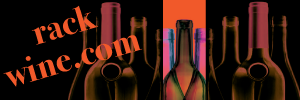
 | Wine is at the head of all medicines; where wine is lacking, drugs are necessary. - The Talmud |
| Home Wine Tasting Wine Tasting Terms Food & Wine Wine Glossary Wine Facts Wine Quotes Wine in Our Culture | |||||||
French Wine

Wine making in France dates back to pre-Roman times. Also it was the Romans who disiminated the culture of the wine and the practice of winemaking throughout the country. The range, quality and reputation of the fine wines of Bordeaux, Burgundy, the Rhone, and Champagne in particular have made them role models the world over. France 's everyday wines can be highly enjoyable too, with plenty of good value wines now emerging from the southern regions. Each of ten principal wine producing regions has its own identity, based on grape varieties and terroir. Appelation controlée laws guarantee a wine's origins and style. The main wine areas are :
Bordeaux - An exhaustive subjectNestled along the western coast of France, Bordeaux is lush with 2.3 million about 40 different wine regions, the four major ones are:
The Medoc region is also broken down into four important inner appellations: St.-Estephe, Paulliac, St.-Julien and Margaux. Bordeaux is unusual in that its wines are created by blending different grapes. Other regions, such as Chablis or Beaujolais, use 100 percent of one varietal. The red wines of Bordeaux rely primarily on three grapes:
Bordeaux is the largest wine region in the world. It's also no doubt the most famous. It produces more of the world's fine wine than any other, and they have been a benchmark for others to follow. Although Bordeaux is predominantly a red wine region, it also produces some of the world's finest white wines — like the dry whites from Graves and the sweet wines from Sauternes. No two wines are alike, yet they all possess qualities that make them Bordeaux. Half way between the North Pole and the equator, the Bordeaux has a climate that is especially conductive to wine growing. The influence of the Gulf Stream, the protective effect of the immense Landes forest against the winds off the Atlantic, plus the presence of large bodies of water ( estuary and rivers ) work together to avoid excessive temperatures in both summer and winter. Vineyards are ideally suited to producing fine red wines are located on a great variety of soils and sub-soils. Gravelly soil is the specialty of the Garonne River's left bank. The right bank vineyards are composed of soil that is more a mixture of clay and limestone, or clay and sand. The triple alliance of soil, sub-soil and climate explains the amazing diversity and individual character of Bordeaux vineyards. The well-balanced nature of clarets (another name for red Bordeaux ) comes from the subtle blend of several grape varieties. Merlot is an early-ripening variety that contributes a spicy, fruity aroma as well as roundness and softness. Cabernet Sauvignon, which ripens later, is deeply colored and aromatic. Its tannin gives wines a remarkable ageing potential. Cabernet Franc confers a very elegant bouquet. Petit Verdot and Malbec are also used, but to a lesser degree. The aim of good winemaking in Bordeaux is to extract pigments and tannin contained in grape skins and produce wines that combine finesse and ageing potential. The 57 appellations of Bordeaux are not classified in a single official ranking. But the Médoc, Sauternes and Barsac, Graves, and Saint-Emilion districts do have their own official internal classification systems. Pomerol, one of Bordeaux's greatest assets, was not included in the 1855 Classification, and remains unclassified to this day. However, Chateau Pétrus is often included with the First Growths (Premiers Crus) of the 1855 Classification. Vineyard area : 82,495 hectares ( 203,845 acres). Grape varieties : 54% Merlot, 30% Cabernet Sauvignon and 16% Cabernet Franc. Annual average production : 575,000,000 bottles of which 32% are exported.
|
|||||||
|
Describing Wine
How To Buy Wine Online
About Fine Wine Auctions
Wine Rating
Champagne Beaujolais Wine Table vs Fortified Vintage Wine Chart Wine Making Wine Grape Varieties Storing Wine Wine Bottles Wine Labels Wine Glasses Old vs New World Wine 1855 Classification Wine Countries The Wine Pact More About Wine
Go To Related Links Find The Site Map Send This To A Friend Send Us Your Comments Link To Our Site Other LinksReport A Broken Link To Us Contact Information |
 
  |
||||||
| RackWine.com |
Site Map |
Terms of Use |
Privacy & Security |
Contact Us |
Purchase Agreement |
Send Feedback |